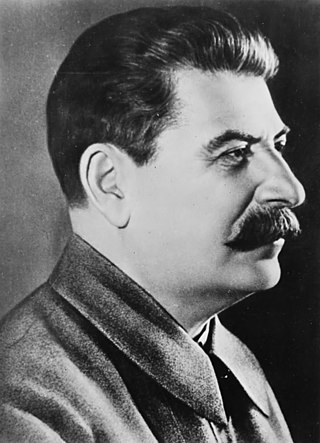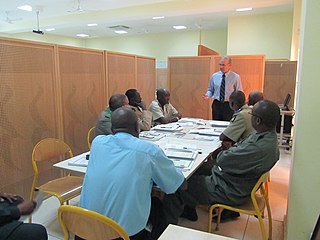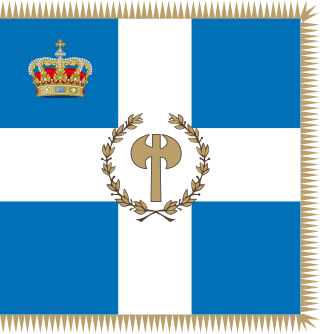
A dictatorship is an autocratic form of government which is characterized by a leader, or a group of leaders, who hold governmental powers with few to no limitations. Politics in a dictatorship are controlled by a dictator, and they are facilitated through an inner circle of elites that includes advisers, generals, and other high-ranking officials. The dictator maintains control by influencing and appeasing the inner circle and repressing any opposition, which may include rival political parties, armed resistance, or disloyal members of the dictator's inner circle. Dictatorships can be formed by a military coup that overthrows the previous government through force or they can be formed by a self-coup in which elected leaders make their rule permanent. Dictatorships are authoritarian or totalitarian, and they can be classified as military dictatorships, one-party dictatorships, personalist dictatorships, or absolute monarchies.

A government is the system or group of people governing an organized community, generally a state.

Totalitarianism is a political system and a form of government that prohibits opposition political parties, disregards and outlaws the political claims of individual and group opposition to the state, and controls the public sphere and the private sphere of society. In the field of political science, totalitarianism is the extreme form of authoritarianism, wherein all socio-political power is held by a dictator, who also controls the national politics and the peoples of the nation with continual propaganda campaigns that are broadcast by state-controlled and by friendly private mass communications media.
Autocracy is a system of government in which absolute power is held by the ruler, known as an autocrat. It includes most forms of monarchy and dictatorship, while it is contrasted with democracy and feudalism. Various definitions of autocracy exist. They may restrict autocracy to cases where power is held by a single individual, or they may define autocracy in a way that includes a group of rulers who wield absolute power. The autocrat has total control over the exercise of civil liberties within the autocracy, choosing under what circumstances they may be exercised, if at all. Governments may also blend elements of autocracy and democracy, forming an anocracy. The concept of autocracy has been recognized in political philosophy since ancient times.
Shura can for example take the form of a council or a referendum. The Quran encourages Muslims to decide their affairs in consultation with each other.
In politics, a regime is the form of government or the set of rules, cultural or social norms, etc., that regulate the operation of a government or institution and its interactions with society. The two broad categories of regimes that appear in most literature are democratic and autocratic. However, autocratic regimes can be broken down into a subset of many different types. The key similarity between all regimes are the presence of rulers, and either formal or informal institutions.
In political science, a political system means the type of political organization that can be recognized, observed or otherwise declared by a state.

Democratization, or democratisation, is the structural government transition from an authoritarian government to a more democratic political regime, including substantive political changes moving in a democratic direction.

Traditional authority is a form of leadership in which the authority of an organization or a regime is largely tied to tradition or custom. The main reason for the given state of affairs is that "things have always been that way".
Patrimonialism is a form of governance in which all power flows directly from the ruler. There is no distinction between the public and private domains. These regimes are autocratic or oligarchic and exclude the lower, middle and upper classes from power. The leaders of these countries typically enjoy absolute personal power. Usually, the armies of these countries are loyal to the leader, not the nation.
Max Weber distinguished three ideal types of legitimate political leadership, domination and authority. He wrote about these three types of domination in both his essay "The Three Types of Legitimate Rule", which was published in his masterwork Economy and Society, and in his classic speech "Politics as a Vocation".
- charismatic authority,
- traditional authority and
- rational-legal authority.
Juan José Linz Storch de Gracia was a German-born Spanish sociologist and political scientist specializing in comparative politics. He was Sterling Professor Emeritus of Sociology and Political Science at Yale University and an honorary member of the Scientific Council at the Juan March Institute. He is best known for his work on authoritarian political regimes and democratization.
Democratic consolidation is the process by which a new democracy matures, in a way that it becomes unlikely to revert to authoritarianism without an external shock, and is regarded as the only available system of government within a country. A country can be described as consolidated when the current democratic system becomes “the only game in town”, meaning no one in the country is trying to act outside of the set institutions. This is the case when no significant political group seriously attempts to overthrow the democratic regime, the democratic system is regarded as the most appropriate way to govern by the vast majority of the public, and all political actors are accustomed to the fact that conflicts are resolved through established political and constitutional rules.

Conducător was the title used officially by Romanian dictator Ion Antonescu during World War II, also occasionally used in official discourse to refer to Carol II and Nicolae Ceaușescu.

Democracy promotion, also referred to as democracy building, can be domestic policy to increase the quality of already existing democracy or a strand of foreign policy adopted by governments and international organizations that seek to support the spread of democracy as a system of government. Among the reasons for supporting democracy include the belief that countries with a democratic system of governance are less likely to go to war, are likely to be economically better off and socially more harmonious. In democracy building, the process includes the building and strengthening of democracy, in particular the consolidation of democratic institutions, including courts of law, police forces, and constitutions. Some critics have argued that the United States has used democracy promotion to justify military intervention abroad.
Alfred C. Stepan was an American political scientist specializing in comparative politics and Latin American politics. He was the Wallace S. Sayre Professor of Government at Columbia University, where he was also director of the Center for the Study of Democracy, Toleration and Religion. He is known for his comparative politics research on the military, state institutions, democratization, and democracy.
Authoritarianism is a political system characterized by the rejection of democracy, civil liberties, and political plurality. It involves the use of strong central power to preserve the political status quo, and reductions in the rule of law, separation of powers, and democratic voting. Political scientists have created many typologies describing variations of authoritarian forms of government. Authoritarian regimes may be either autocratic or oligarchic and may be based upon the rule of a party or the military. States that have a blurred boundary between democracy and authoritarianism have some times been characterized as "hybrid democracies", "hybrid regimes" or "competitive authoritarian" states.
Authoritarian socialism, or socialism from above, is an economic and political system supporting some form of socialist economics while rejecting political pluralism. As a term, it represents a set of economic-political systems describing themselves as socialist and rejecting the liberal-democratic concepts of multi-party politics, freedom of assembly, habeas corpus and freedom of expression, either due to fear of the counter-revolution or as a means to socialist ends. Several countries, most notably the Soviet Union, China and their allies, have been described by journalists and scholars as authoritarian socialist states.

Metaxism is a Greek authoritarian nationalist ideology associated with Ioannis Metaxas. It called for the regeneration of the Greek nation and the establishment of a modern, culturally homogenous Greece. Metaxism disparaged liberalism, and held individual interests to be subordinate to those of the nation, seeking to mobilize the Greek people as a disciplined mass in service to the creation of a "new Greece."







